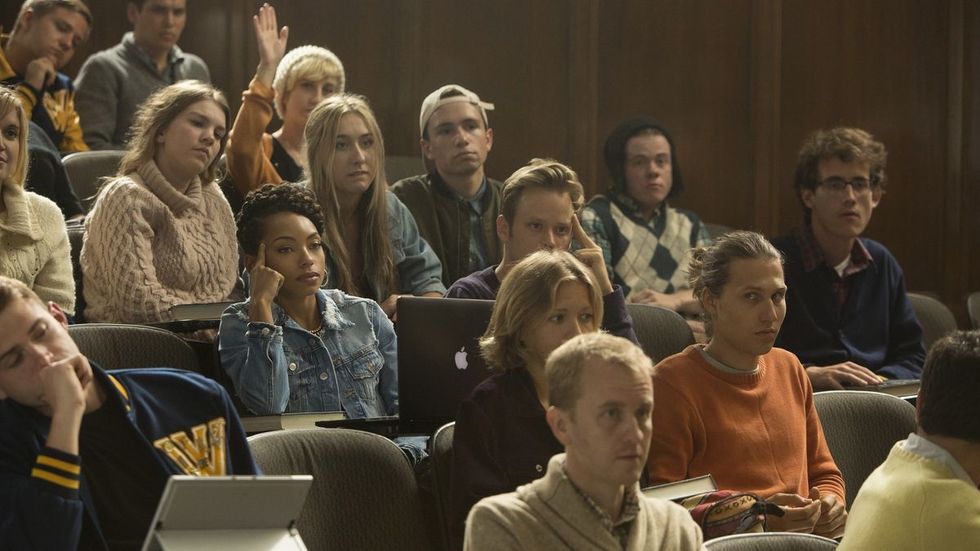Sophomore year of high school, I remember walking into my Geometry Honors class with a lack of confidence and beady white eyes staring at me. I sat in front of the class and looked around and said to myself, "Wow, I am the only black student." I remember talking with my teacher about my observation and telling her, "I just want you to know that I will work hard not to become another statistic in your classroom."
Why did I do that? To satisfy my insecurity of internalized oppression? To guard myself against perpetuating the stereotype considering the fact that I was the "only one?"
Sophomore year bled into junior year of high school and I took AP U.S. History and Language & Composition. I was one of four black students in the class. It was a class of 40 students.
I never considered myself to be the intellect of the bunch. I was just a regular black student who sought to push themselves beyond what they could imagine. And that meant being in AP and Honors courses where the white narrative and image was all that I saw.
It was odd being one of four. That meant that I had to be the spokesperson for the other three and an entire race. That meant that when slavery or any black issue was brought up I would get stared down. At the time, I thought in stereotype as if I had to stay in that type of environment in order to prove that same stereotype wrong. I was surrounded by so much privilege that it made me think that I was born with a silver spoon myself. It was odd. It was painful.
It was painful to not see my fellow brothers and sisters of color take on the same challenge as me. I guess at this time, I became almost numb to the idea of being the only one. I was uncomfortable yet okay with it. It was not that I wasn't aware of being the only one, it was more asking myself what else could I do?
Junior year bled into freshman year of college and the same narrative still persisted in its image. This time it took the form of big lecture halls and small classroom discussions.
English classes.
Education classes.
History classes.
Need I list more?
Although I'm not phased doesn't mean that I don't have my guard up. I'm still scared that I might perpetuate the stereotype of the angry black woman when I speak out against injustice in a discussion. I'm still pained at the fact that I do not see my fellow brothers and sisters. When I do, it's a family reunion.
I look at being the only one as an opportunity to get ready for the darker and meaner world outside of this institution.
I am preparing to use my voice so that my world doesn't become normalized.
So that being the only one doesn't become normalized.
But I'm afraid to say that it is.



















